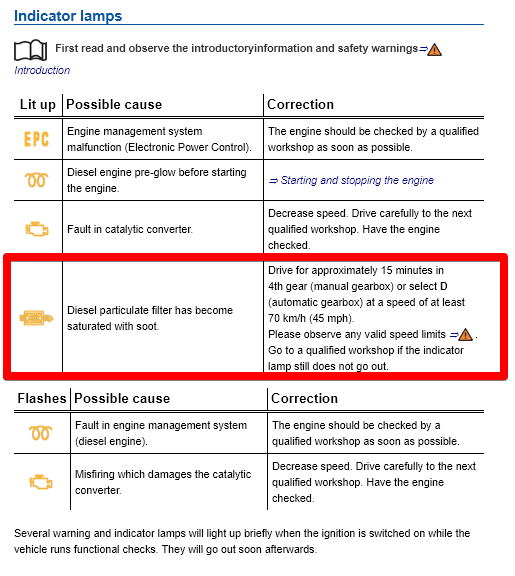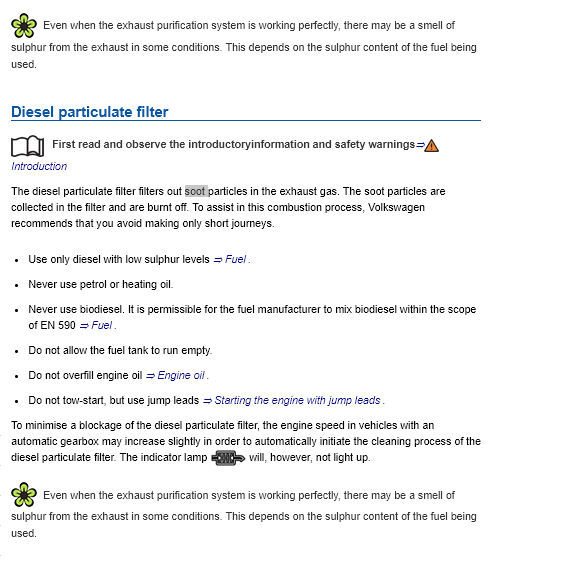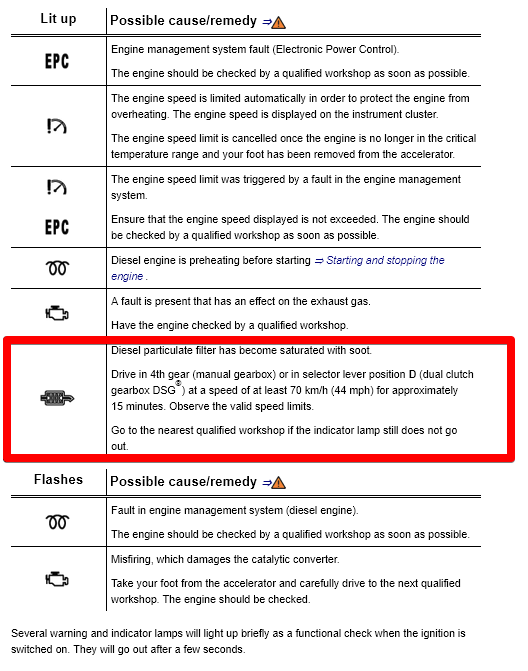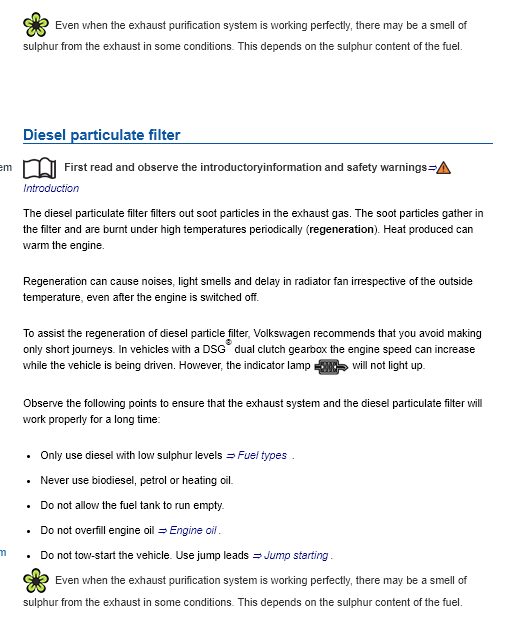
The humble VW Golf, Germany’s modern day peoples car and probably one of the most popular German cars ever to grace a UK drive way. Thing is, apart from the epic performance models such as the legendary GTI and R, most of them are diesel and you know what comes with diesel… the dreaded DPF.
We’ve pretty much done DPFs to death on this site but we’ve noticed that apart from our coverage of #deiselgate, we’ve neglected to cover the plucky Golf and the issues surrounding its diesel particulate filter in any detail. We’re about to fix this.
History
Before I get too deep into the Golf’s diesel woes, let’s cover the history of the Volkswagen Golf Diesel. Back in ’76 (a full two years after the Golf went on sale) VW equipped the Mk1 with a 1.5l diesel heart. This non turbo charged oil burner managed a whopping 42MPG from its 50BHP power plant. That’s a long way from the triple figure power numbers from present day cars but pretty damn good for a car back in the 70s. In fact, this diesel engine made the Golf one of the most fuel efficient cars of its time.
Over the years, the VW diesel engines have come a long way. The MK2 saw the displacement jump to 1.6l and up to 1.9 in the Mk3 (yes, I had one of theses and it was a great engine!).
Which Golfs have DPFs
From the mighty Mk1 all the way up to the dull Mk4 (yuk!), Golf diesels escaped the impending doom of the DPF. Euro 5 emission regulations were introduced in 2005, so too was the need for something to stop carcinogenic diesel particulates from spewing out of Golf exhausts across Europe. To keep emissions inline with EU regulations VW had no choice but to fit the Golf with a diesel particulate filter (DPF for short).
Quick Links
MK5 Golf DPF – 2003 to 2009
The introduction of the first 2.0l diesel into the Golf saw the first DPF strapped to a Golf exhaust. The internet suggests that the 1.9l diesel engine was still available in the MK5 but seems to have escaped the DPF due to it’s amazingly low emissions figures – it was also only a 1.9l.
HELP!
Unfortunately, we’ve been unable to locate a MK5 Golf Owners manual on the old interwebs. Please do get in touch if you have a copy and can send us the dash warning light and DPF information. For now we’d recommend using the MK6 information as a guide. Sorry!
MK6 Golf DPF – 2009 to 2013
We’ve been much luckier in finding information about a how to perform a DPF regeneration in the MK6 Golf. See below images and extracts from the online owners manual.
DPF warning light on the dash

Drive for approximately 15 minutes in 4th gear (manual gearbox) or select D (automatic gearbox) at a speed of at least 70 km/h – 45 mph).
Please observe any applicable speed limits. If the indicator lamp still does not go out, go to a qualified workshop.
Owners Manual DPF information

Diesel particulate filter
The diesel particulate filter filters out soot particles in the exhaust gas. The soot particles gather in the filter and are burnt under high temperatures periodically (regeneration). Heat produced can warm the engine.
Regeneration can cause noises, light smells and delay in radiator fan irrespective of the outside temperature, even after the engine is switched off.
To assist the regeneration of diesel particle filter, Volkswagen recommends that you avoid making only short journeys. In vehicles with automatic gearboxes the engine speed can increase while the vehicle is being driven. However, the indicator lamp will not light up.
Observe the following points to ensure that the exhaust system and the diesel particulate filter will work properly for a long time:
- Only use diesel with low sulphur levels ⇒ Fuel .
- Never use biodiesel, petrol or heating oil.
- Do not allow the fuel tank to run empty.
- Do not overfill engine oil ⇒ Engine oil .
- Do not tow-start the vehicle. Use jump leads ⇒ Starting the engine with jump leads .
MK7 Golf DPF 2013 to present
The information in the MK7 owners manual was updated very slightly with the MK7. In fact a regeneration can take place a whopping 1MPH less than in the Mk6. It also gives mention of the DSG gearbox available in the Golf.
DPF warning light on the dash

| Diesel particulate filter has become saturated with soot. |
| Drive in 4th gear (manual gearbox) or in selector lever position D (dual clutch gearbox DSG®) at a speed of at least 70 km/h (44 mph) for approximately 15 minutes. Observe the valid speed limits. |
| Go to the nearest qualified workshop if the indicator lamp still does not go out. |
General DPF Owners Manual Information

Diesel particulate filter
The diesel particulate filter filters out soot particles in the exhaust gas. The soot particles gather in the filter and are burnt under high temperatures periodically (regeneration). Heat produced can warm the engine.
Regeneration can cause noises, light smells and delay in radiator fan irrespective of the outside temperature, even after the engine is switched off.
To assist the regeneration of diesel particle filter, Volkswagen recommends that you avoid making only short journeys. In vehicles with a DSG® dual clutch gearbox the engine speed can increase while the vehicle is being driven. However, the indicator lamp will not light up.
Observe the following points to ensure that the exhaust system and the diesel particulate filter will work properly for a long time:
- Only use diesel with low sulphur levels ⇒ Fuel types .
- Never use biodiesel, petrol or heating oil.
- Do not allow the fuel tank to run empty.
- Do not overfill engine oil ⇒ Engine oil .
- Do not tow-start the vehicle. Use jump leads ⇒ Jump starting .
Golf DPF cleaning
If your dash is showing the dreaded DPF warning light then it’s going to be one of two things. Either your DPF pressure sensors has failed or your DPF has clogged up. If you’re unlucky enough for the DPF sensors to fail then we’d suggest reaching out to the VW forums or a friendly garage for assistance. If it is the DPF at fault, you’ll be wanting to carry out the instructions as per the owners manual above. You might also consider a DPF cleaner to help speed up the DPF unblocking process. DPF cleaners work by reducing the temperature at which the soot can be burnt off ridding it of its sooty contents much easier and at lower exhaust temperatures. Please be aware that ANY cleaning or regeneration process will not remove the Ash content from your DPF, it will ONLY burn off the soot.
For more information DPF cleaning and to read our highly popular DPF FAQ page see the links below.]
#Dieselgate
We can’t talk about the diesel Gold without also discussing the VW emissions recall that crippled VW diesel engines across the planet. We’ve covered this topic A LOT so rather than bleat on further, see the links below for more information
- Dieselgate: How the emissions “fix” will affect your DPF Diesel Particulate Filter in your VW, Audi, Skoda & Seat
- Can the VW VAG EA 189 NOx emissions fix be reversed? Is a remap the answer?
- Swedish motor magazine Teknikensvarld.se proves Emissions fix has negative effect on MPG and power
- Did Volkswagen mislead owners into believing the emissions fix was mandatory?
- EU Parliament votes to “financially compensate” car buyers affected by VW emissions scandal
- Volkswagen get the green light from US regulators to sell “fixed” diesel vehicles
- Deiselgate: VW offers warranty for US Emissions fixes while UK made to suffer three figure repair bills
- Dieselgate: Department for Transport confirms VW “fix” causes twice the level of carcinogenic diesel particulate matter
- Dieselgate: Are dishonest dealerships cashing in on VW emissions “fix” EGR failures?
- Dieselgate: Dealers could be forced into paying 100% compensation to owners of affected vehicles
- The Volkswagen Group is systematically refunding owners for EGR failures after the emissions “fix”
- Dieselgate: Is the UK Government and Press in bed with VW? Is this a cover up?
Golf Manuals
If you’re looking for your owners manual for a VW newer than 2011 – check out their website – Golf Owners Manual
Golf diesels beyond the MK7.
You’ll have probably heard (and maybe agree) that diesel has had its heyday. The effects of diesel gate and the diesel emissions crack down in capital cities across the world has demonised the old oil burner, sending sales and confidence plummeting. This combined with VW’s decision to stop developing it’s diesel engine line up gives a pretty big indication that future generations of the Golf i.e. the Mk8 (2020) will see only Petrol, Hybrid and full electric power plants beating inside their engine bays. The move over to cleaner burning fuel is certainly a good thing, however there will always be a loyal diesel following who will continue to pine for the high compression, low running costs and super efficient engines powering their VWs of the past. Unfortunately for them, and within our life time, we’ll see diesel passenger cars disappear from showrooms for ever.
Let’s hear from you
Do you have a Golf DPF cleaning / regeneration tip that we’ve missed? How reliable has your Golf diesel been? Have we messed up or made a mistake in this article?
Let us know your thoughts in the comments below.




I have a “Cheater” TDI wagon. In the last 30-60 days, I’ve noticed an increase in the frequency of regeneration and a drop in fuel efficiency. This might be related to the fix and an increased reliance on the filter, which could becoming a problem. Stay tuned.